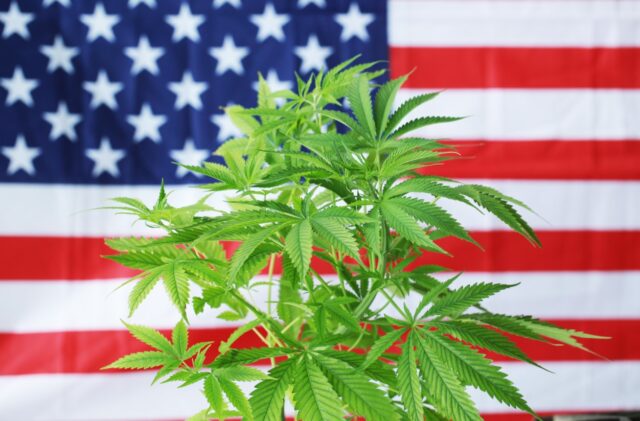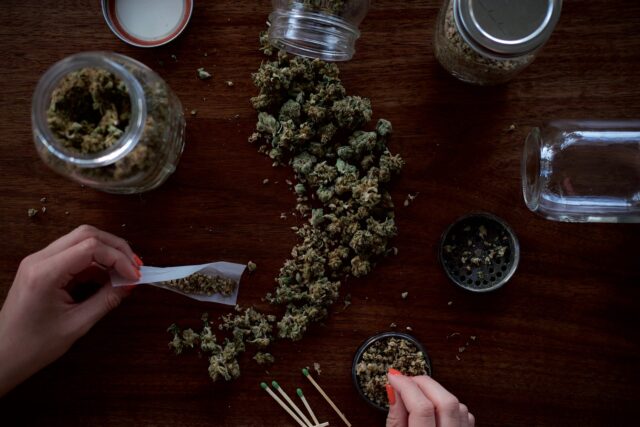
The use of marijuana is one of the most regularly reported substances in the United States. Although it is less common than alcohol or prescription medications, the number of persons jailed for marijuana-related offenses is much higher.
Even though marijuana has been outlawed in the United States for a long time and has been the subject of intensive public attention, government officials and law enforcement agencies have spent decades attempting to enforce, or at the very least discourage marijuana legislation.
Sometimes, laws and regulations are enacted without much thought or analysis of their implications and repercussions. However, cannabis laws in the US are far more nuanced than most people realize. This article will discuss some of the main things you should understand about cannabis laws in the United States of America.
1. The Federal And State Levels Have Different Laws

With more and more states legalizing weed in one form or another, it is becoming increasingly apparent that the two tiers of law in the US are becoming more pronounced. The US federal government currently considers marijuana to be illegal, but many states have legalized either recreational or medical marijuana use in recent years. While some states have decriminalized marijuana, it is still illegal to transport it across state lines, sell it, or use it in public places such as parks and sidewalks. Many people believe that this legislation will continue to change as time goes on, and more research is conducted on the effects of cannabis use on mental health and addiction rates.
Nevertheless, with more people beginning to support full-scale legalization a la Canada, it seems that many states have begun to enact legislation to legalize or reduce sentences to misdemeanors. However, it is still a patchwork of laws and regulations that vary from state to state and country to county. If you are confused, don’t worry, lots of people are, but this guide at area52.com provides comprehensive information regarding individual states and the various regulations surrounding the different forms of cannabis. In addition to the wide array of laws, things become even murkier when you realize that crossing state lines in possession of cannabis are a federal offense.
2. Even If Both States Have Legalized Possession, It Is Prohibited To Cross State Lines With It
It is illegal to transport cannabis across state lines, even if you are crossing between states that have legalized marijuana. The conflict between state and federal law is driving some cannabis users to cross state lines to purchase the drug legally from another jurisdiction, and by doing so, they are putting themselves at risk of prosecution. The legal status of marijuana varies from state to state, but it’s illegal under federal law no matter where you are in the US. For example, California and Oregon both permit the recreational use and possession of cannabis. If, however, you crossed the border between these places, you would be committing a serious federal crime.
3. Medical Use Is Classified Differently To Recreational Use

Medical marijuana relieves pain and other symptoms caused by illness, injury, or other conditions. The cannabis plant contains a chemical called delta-9-tetrahydrocannabinol (THC), which has been shown to have medicinal properties. Many states have legalized the use of medical marijuana in the United States.
Recreational marijuana use is the use of cannabis products for personal, non-medical purposes. Many people enjoy recreational marijuana because of its euphoric and relaxing effects on the body. It can also help to relieve pain, nausea, and anxiety. The term “recreational” refers to its use outside of medical applications and does not have any legal definition. Instead, it is a word used to differentiate from “medical” marijuana, which may be prescribed by a doctor for medicinal purposes.
While many traditionally conservative states have begun to allow the use of medical cannabis, some remain staunchly opposed to recreational use. However, this has been changing in recent years, and many states that permit medicinal use treat recreational possession up to a certain amount) as a misdemeanor rather than a felony charge.
4. It Is Still Illegal To Get High And Drive
Regardless of where you live or what your state’s stance on cannabis use may be, it is and will always remain illegal to consume cannabis and drive. Driving under the influence is no different from drinking and driving, and there is a good reason for this. Cannabis alters your state of mind and, as such, impedes your ability to drive safely.
5. There Is No Tolerance For Public Consumption Anywhere

In a similar fashion to how it is illegal to drive under the influence, it is also illegal, by and large, to smoke in a public place. In fact, even THC-infused edibles are technically illegal to consume in public, but how much this is enforced is anyone’s guess. However, you can be assured that the more obvious you are with your public consumption, the more likely it is that you will get arrested.
6. The Vast Majority Of Americans Want It Legalized
According to research by Pew Research Center, nine out of ten Americans favor legalizing marijuana in some form. This is quite phenomenal when you think about it, as it indicates a seismic change in attitudes over the past 20 years. However, this only shows part of the story. When you look at the data more granularly, you can see that opinions still vary by age and political affiliation.
Older people are still more likely to oppose any form of legalization, with only around 32% of people 75 or older supporting full decriminalization. This is contrasted acutely by the fact that over 70% of citizens under 30 support reform. Furthermore, 72% of Democrat voters vs. 47% of Republican voters favor legalization (which is still an admittedly high number for conservative voters).
Each state regulates marijuana differently. Some states have decriminalized the drug, while others have legalized it for medicinal or recreational use, and also in some states, you can buy weed online. However, it remains a controlled substance at the Federal level. Nonetheless, it looks as though changes could be on the horizon if the trend toward decriminalization persists.







